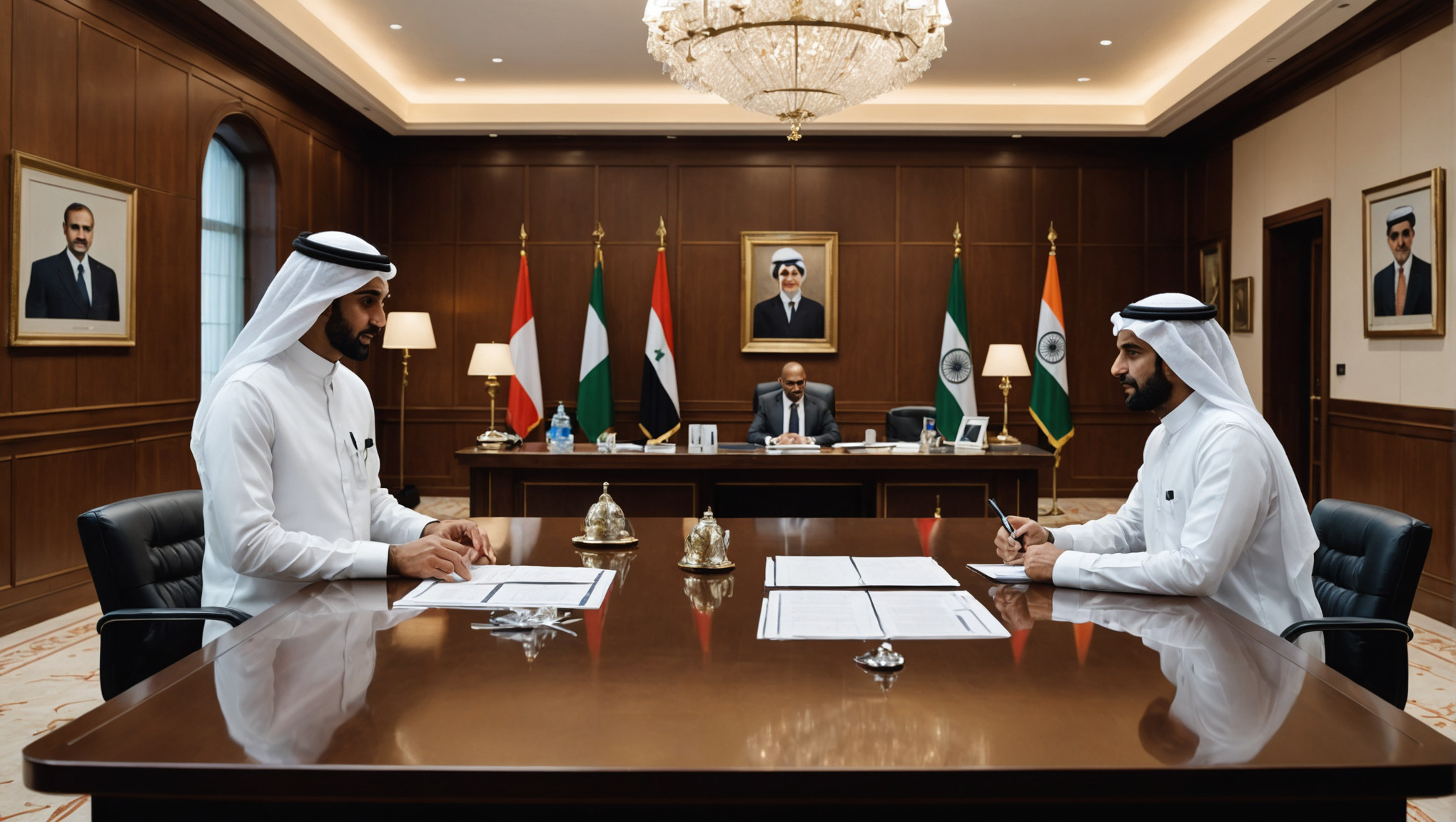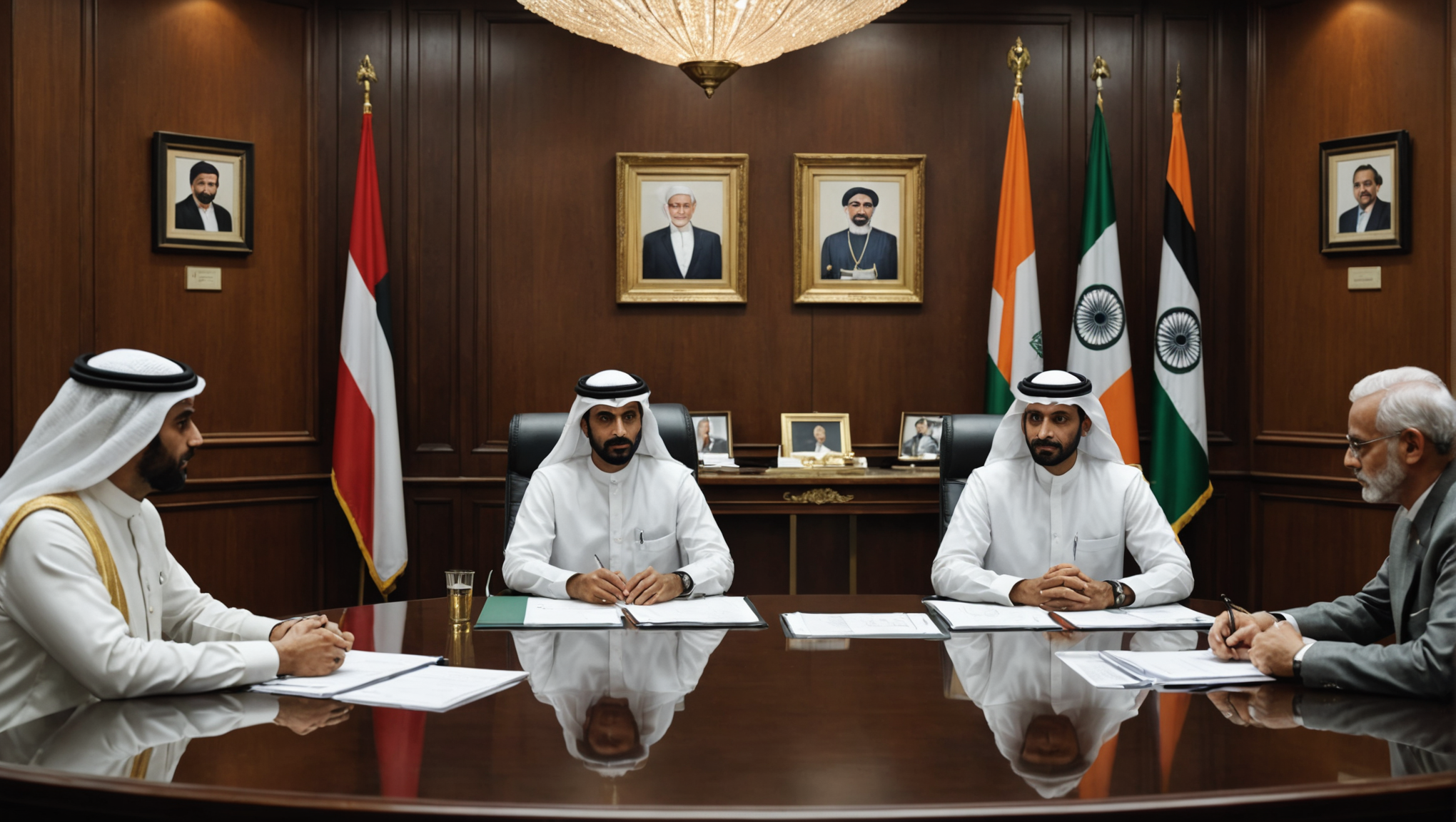In a changing trade environment, the UAE has taken the initiative to address India’s concerns over the significant increase in imports ofsilver alloys and of platinum. This approach demonstrates the growing importance of bilateral relations between these two nations, marked by dynamic trade and a common desire to strengthen their economic partnerships. As India seeks to protect its domestic market, the Emirates is exploring solutions to maintain harmonious cooperation while ensuring a trade balance beneficial to both sides.
THE United Arab Emirates expressed their willingness to take into account the concerns of theIndia faced with the increase in imports ofsilver alloys and of platinum. This dialogue follows India’s concerns about the potential impact on its local market. Both nations seek to establish balanced solutions to maintain healthy trade relations and foster economic cooperation sustainable. This approach is part of their strengthened partnership, aimed at ensuring that trade remains beneficial for both parties.

Table des matières
ToggleThe United Arab Emirates and India: a dialogue on alloy imports
In a constantly evolving economic context, United Arab Emirates have recently demonstrated their willingness to take into account the concerns of theIndia regarding the increase in imports ofsilver alloys and of platinum. The two countries, which maintain strong trade relations, seek to establish a framework that is both beneficial and balanced. This situation highlights the importance of bilateral collaboration to resolve contemporary economic challenges.
The impacts of increasing imports on the Indian economy
Imports ofalloys of platinum and money India have raised concerns among domestic producers. For theIndia, a country that relies heavily on the import of these precious metals, the situation requires in-depth discussions. In response to this, the United Arab Emirates is committed to supporting regulation that can stabilize the market and respond to the specificities of the economic actors involved.
Steps planned to address India’s concerns
To mitigate the effects of imports ofalloys, the United Arab Emirates is considering several measures aimed at supporting local production in India. In addition, the two countries are exploring initiatives that could promote a cooperation narrower in the area of research and of development new technologies linked to precious materials. These steps demonstrate a common desire to support local industries while preserving fruitful commercial relationships.
UAE response to India’s import concerns
In a context of growing commercial tension, United Arab Emirates showed a significant willingness to respond to concerns of India regarding the increase in imports of silver and platinum alloys. This constructive dialogue between the two nations highlights not only their economic interconnectedness, but also their desire to maintain fruitful diplomatic relations. India, which is one of the UAE’s main trading partners, has expressed concerns over how these imports could affect its own domestic market.
Emirates representatives, in recognition of these concerns, commit to holding in-depth discussions. These discussions will aim not only to analyze the impact of increased importation on Indian markets, but also to explore viable solutions that could be adopted to moderate these flows. This is an essential step to strengthen economic ties and ensure that both countries mutually benefit from trade.
Additionally, the UAE is committed to establishing a regulatory framework that will promote a healthy balance in the trade of precious metals. This initiative is based on the idea that economic growth should not come at the expense of others, and that a collaborative approach is imperative. The establishment of import quotas or pricing agreements could be considered in order to ensure effective regulation.
In summary, the Emirates’ proactive response to these concerns demonstrates a desire to establish a sustainable and balanced trade partnership, taking into account the respective needs and ambitions of each country. This dialogue is a decisive step towards strengthened cooperation in the years to come.








